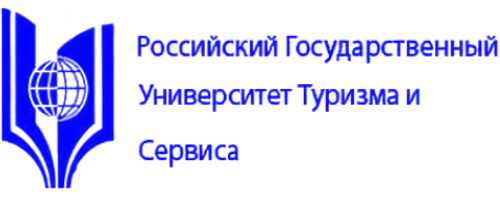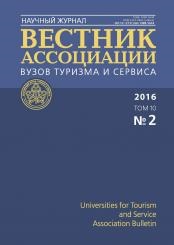The article reveals the essence and content of the concept of anthropology in the context of culture as a social system. The article highlights the role and importance of anthropology in the sciences, the basic directions of study of anthropology, the characteristics of the content object and purpose of anthropology as a science, including interdisciplinary and comprehensive anthropological research. The authors pay attention to the fact that the anthropological problem is currently engaged in more than 200 sciences. The paper highlights two main areas of anthropological science which are physical anthropology and cultural anthropology. The subject of the first is associated with the natural characteristics of the person, and the second thing is formed around the social characteristics of the people who, in one way or another are connected with the culture as a basic human activity. The article notes the components of physical and cultural anthropology, highlighting the most interesting problems associated with these areas. Separately considered is the fact that the man, anyway, is always connected with the surrounding culture, and that the man, anyway, a cultural being. The paper presents 12 anthropological characteristics, formed in humans as a result of interaction with the culture. So, the following cultural aspects of human life and activity are stressed: education, socialization, purpose, self-realization, creativity, self-development, procreation, creating own cultural trail and others. The work is based on the author´s research through the study and synthesis of scientific information. The article may be interesting and useful to the scientific activities of anthropologists and cultural scientists as well as economists. The article may be of practical interest for the leaders of organizations in the management of personnel and formation of organizational culture.
culture, anthropology, systems, organizations, people.
Сущность и содержание категории «антропология».
Антропология — это гуманитарная технология XXI в., которая благодаря уникальному набору методик и фундаментальности позволяет решать самые разнообразные задачи. Именно антропология дает возможность смотреть на мир широко раскрытыми глазами; глубоко понимать проблемы человечества; способность действовать эффективно в культурно неоднородной среде; понимание того, что культуры и народы взаимно обогащают друг друга.
Трудно представить развитие социальных организаций без основополагающих реалий социальной антропологии, которую не без оснований называют также: антропологией в управление, культурной антропологией, организационной этнографией, индустриальной антропологией и др. Более того, сегодня антропологические отношения выступают как объективно обособившиеся виды управленческой, политической, социальной деятельности. Поэтому можно ввести и такие категории, как управленческая и политическая антропология. В структурах управления организаций, особенно экономических и социальных, появляются специалисты — антропологи.
Западные компании все чаще к работе нанимают антропологов, которые для компании де-
1. Latfullin, G.R., Novichkov, N. V. Politicheskaia organizatsiia [Political organization]: Textbook. SPB: Piter, 2007.
2. Nadeev, A.T. Sistematika [Taxonomy]. Kn. 1: [The concept of taxonomy 2nd ed., Rev. and add.]. N. Novgorod: Izd-vo Volgo-Viatskoi akademii gos. sluzhby 2006. 116 p.
3. Novichkov, N. V. Gorodskoe iskusstvo i prednaznachenie sovremennogo goroda [Urban art and purpose of the modern city] // Sovremennye problemy turizma i servisa. [Tourism and Service: Current Issues]. 2013. № 4.
4. Novichkov, N. V. Tvorcheskaia svoboda dlia kul´tury biznesa, innovatsii [Creative freedom for culture, business, innovation] //Vestnik Assotsiatsii vuzov turizma i servisa [Universities for Tourism and Service Association Bulletin]. 2014. T. 8. № 2.
5. Trosbi, D. Ekonomikai kul´tura [Economy and culture]. M.: Izd. dom Vysshei shkoly ekonomiki, 2013. 256 p.
6. Kharrison, L. Kto protsvetaet? Как kul´turnye tsennosti sposobstvuiut uspekhu v ekonomike i politike [Who Prospers? How cultural values contribute to the success in economy and politics]. M.: Novoe izdatel´stvo, 2008.
7. Flier, A. la. Kul´turologiia dlia kul´turologov [Cultural Studies for culturologists]: Textbook. M.: MGUKI, 2009.
8. Investigation of the Russian cultural context: Business elite philosophy Sakharchuk, E.S., Kim, D.J. 2014. Life Science Journal.
9. Kortunov, V. V. Prolegomeny к metodologii verifikatsii irratsional´nykh system [Prolegomena to the methodology of verification irrational systems]. T 1. Aktual´nye issledovaniia [Recent research]. M., 1999.
10. Kortunov, V. V. Ratsional´noe i irratsional´noe v evoliutsii kul´turno-istoricheskikh tipov mirovozzreniia [Rational and irrational in the evolution of cultural-historical types of worldview]. PhD thesis / Gos. in-t iskusstvoznaniia. M., 1999.
11. Kortunov, V. V. Begstvo ot real´nosti ill oborotnaia storona telekommunikatsiomiykh tekhnologii [Escape from reality or the reverse side of telecommunication technologies]. M., 2003.
12. Kortunov, V.V., Imitatsiia zdravogo smysla. Ocherki po teorii mirovoi kul´tury [Imitation of common sense. Essays on the Theory of World Culture]. M., 2001.
13. Stoliarov, D. Iu., Kortunov, V. V. Kul´turologiia [Cultural Studies]. M., 1998.
14. Kortunov, V.V., Platonova, N.A. Philosophical and socio-cultural aspects of the economic type of thinking. Middle East Journal of Scientific Research. 2013. T. 16. № 2. pp. 296-303.
15. Krasnova, O.N Problems of social cohesion development. Middle East Journal of Scientific Research. 2014. T 19. № 3.





